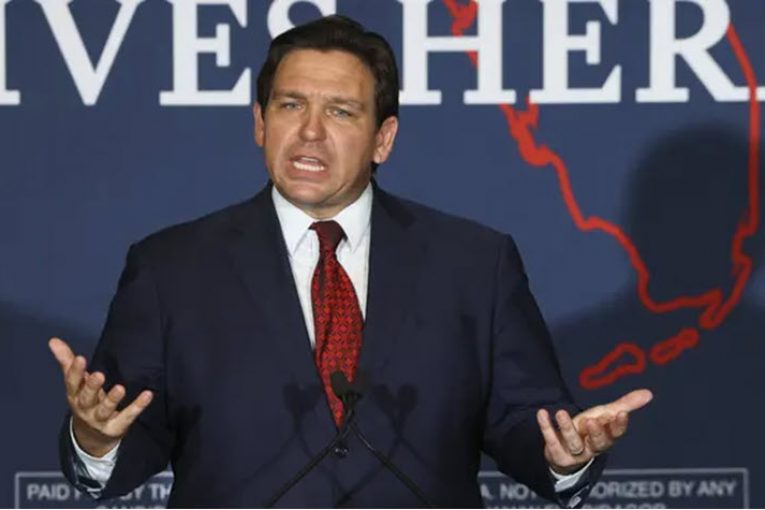

By Annie Rudolph and Madi Whittemore
TALLAHASSEE, FL – Florida Governor Rob DeSantis’ suspension of State Attorney Monique Worrell in early August has triggered massive backlash from a large group of bipartisan criminal justice leaders who are demanding her reinstatement and accusing DeSantis of compromising democracy.
“Nearly two-thirds of the voters in Orange and Osceola counties elected Monique Worrell to serve as their state attorney, and they have now been disenfranchised by a governor set on prioritizing politics over preserving democracy and the interests of the community,” Miriam Krinsky, executive director of Fair and Just Prosecution and a former federal prosecutor said Monday.
Krinsky also referred to Worrell’s suspension as an “authoritarian attack” that violated the state’s Constitution and infringed on democratic principles since “the community is being deprived of an elected prosecutor who shared their values.”
In fact, according to Krinsky, the 121 criminal justice leaders (including former judges, U.S. Attorneys, and Department of Justice officials) filed an amicus brief Monday to appeal to the Florida Supreme Court to overturn Worrell’s suspension.
According to the brief, suspending Worrell was unconstitutional because DeSantis based his decision off of personal dissent with Worrell’s policies – which the signatories highlighted should be dealt with by the voters of the state in 2024, not by the political beliefs or “whims” of a state governor.
“Governor DeSantis has once again suspended a duly-elected State Attorney because he apparently disagrees with her policies,” pointed out Barbara Pariente (a former Florida Supreme Court Chief Justice and signatory to the brief).
Pariente added, “In so doing, he has, yet again, exceeded his authority, violated well-settled prosecutorial independence and disregarded the rights of the people of Florida to be represented by their chosen leaders.”
The brief refers to prosecutorial independence as a crucial aspect of a criminal legal system that DeSantis’ actions violate and in doing so he “upsets the careful balance of roles and responsibilities delegated to local as well as state actors.”
Another signatory to the brief, Garry L. McFadden, a sheriff in Charlotte, N.C., shared similar concerns regarding DeSantis exceeding his authority and described how DeSantis’ actions will erode people’s trust in the criminal legal system, therefore leading to less cooperation between citizens and law enforcement officials.
“ I am responsible for promoting safety and well-being in my jurisdiction. If state leaders are allowed to baselessly remove local prosecutors simply for disagreeing with their approach to justice, confidence in our democratic institutions will be irreparably harmed and people will be less willing to cooperate with the criminal legal system,” McFadden said, explaining how Worrell’s suspension could set a dangerous precedent for future decision makers.
The brief further accentuated the perils of DeSantis having too much power and explained that if future governors continue to abuse their powers as DeSantis has, “Any guardrails for the future will be off…[and] the floodgates will open to allow removal far beyond what the [Florida] constitution contemplated.”
Krinsky agreed, noting her own concerns about DeSantis jeopardizing public safety and said that “allowing this abuse of power to stand would empower the governor to suspend any and all elected officials with whom he disagrees from office with impunity, eroding democracy and trust in the rule of law in Florida, and thereby also endangering public safety.”
Despite DeSantis’ adamant efforts to keep SA Worrell out of the office, criminal justice leaders are continuing to call out DeSantis for usurping the law and violating his constituents’ electoral decisions in hopes to protect democratic principles for the future.




